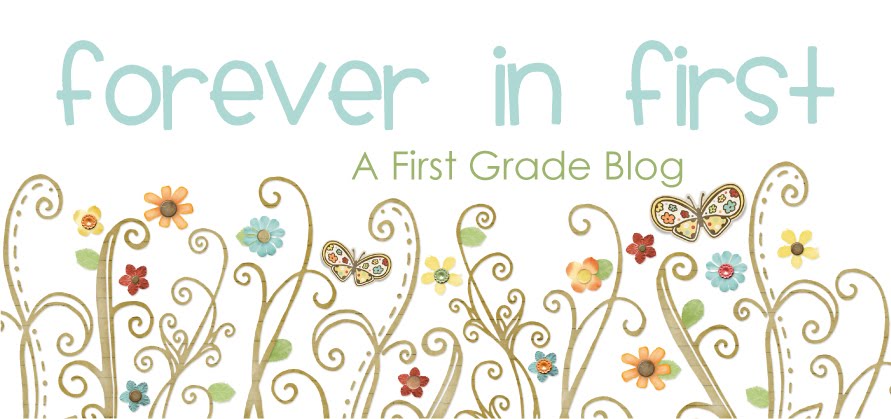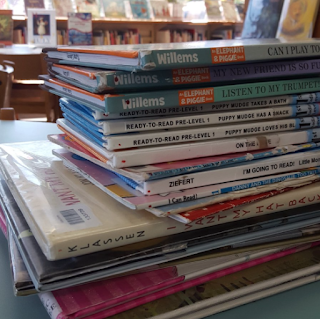I truly believe that preventing the summer slide starts on day one of school. If we wait until April, May, or June to attack this issue, we've waited too long. That's not to say there aren't some worthwhile strategies that teachers can implement as they launch students into the summer months.
Of course, book access is key. In a perfect world, I'd send all students home with enough books to keep them engaged for the whole summer. (Did you know that Todd Nesloney's school actually made this happen? Read about it here. The whole idea makes me salivate!) I don't have the resources to pull off this kind of miracle, but I do have access to a local library and I have time to spare.
For a few years now, I've donated an hour of my time nearly each week of the summer to meet with my students at our local library. I call it Miss McMorrow's Summer Book Club.
Logistics:
Since I don't want to be locked into a schedule, I simply choose a day and time on a weekly basis that works for me, so parents just have to flexible. One week we might meet on a Friday morning. The next week might be a Wednesday afternoon. I simply send an email and text to parents the day before. I invite them to drop off their child at a certain time and pick them up an hour later. I arrive at the library early enough to choose some good read-alouds, as well as some books I think students would be able to read with independence.
Our hour together starts with time for everyone to share their summer stories. Then I read to them. That's followed by some partner reading using the books I picked out. Finally, they get to explore the library for books they want to read.
Obviously, my book club won't meet during the week I'm away at church camp, and a few years ago, I abandoned the idea of book clubs altogether. Honestly, it was one of those years x 10, and I needed a break. Otherwise, giving up an hour per week of my summer really feels like no sacrifice at all.
Not everyone has the luxury of time during the summer like I do, but minus incentives and myriad other "strategies" that when analyzed really don't work or align with our beliefs, how will we creatively increase the odds that our readers are readers even when they're not at our fingertips? It's a question worth asking.


I want three things from any professional book I read.
1) I want to be validated.
I hate to sound narcissistic, but in reality, I need to know I'm doing a thing or two right sometimes, and it's reassuring to find a version of my story on the pages of a highly esteemed author's book. I remember when I read The Book Whisperer and Donalyn Miller validated why independent reading is a nonnegotiable. To be able to say, "Hey, I do that too" or "I couldn't agree more" empowers my practice. Additionally, sometimes an author is able to articulate the "why" of what I do with research and explanations that I hadn't thought through well enough. She turns my unintentional practice into conscious competence.
2) I want to be inspired.
Every time I read Regie Routman's work, I am inspired to outgrow the latest version of my best self. She has a way of convincing me I can do better but without attaching the guilt of who I have been compared to who I want to be. Hope, optimism, perspective are empowering. I want to walk away from a book with a spring in my step.
3) I want to be challenged.
I've been hearing a lot about the "echo chamber" lately. Am I surrounding myself with only likeminded voices? As I previously mentioned, I enjoy and seek out validation but when approached with new voices and ideas, I have an opportunity to stretch and question my existing pedagogy. I'm currently reading Kids 1st From Day 1 by Kristine Mraz and Christine Hertz. I'm familiar with their work, so I knew even before I read the first page that it would be an uncomfortable read at times, and they do not disappoint. Though the stretch is slightly uncomfortable, I welcome the challenge and come next year, my students will be better off because I have.
Are you seeking validation, inspiration, and challenge this summer? There are so many great reads out there. It's quite literally impossible to claim there's not one written just for you from teachers who are also in the trenches and can help you along your journey in whatever capacity you need it.
I'd like to extend an invitation to check out Gatekeepers. I'd like to think it offers validation, inspiration, and a challenge or two.
Go find your read!


Besides taking a daily nap, whether I need one or not, one of my summer goals is to read more books than I did last summer. Forty-one to be exact. No problem, right? (Note: Eighteen books down and I'm well on my way.)
Thanks mostly to Goodreads, I have both figurative and literal piles of books waiting for my attention, and even though the professional books in my stack are top-notch, my draw to fiction is hard to resist. Let's face it. I spent nine months knee-deep in all things educational. I deserve a break. Yet as I mention in my book, Gatekeepers: Let's Talk about Teaching, I'm in charge of my own professional development, and spending quality time with authors who know their stuff feeds my teacher heart. So how do I do both? How do I attack that pile of enticing fiction and read about my practice at the same time? Well, I've found a system. I've been intentional.
Every morning after I read my Bible and devotional, I read the next portion of whatever professional book I'm working on. It's become part of my routine, and I have to say, I look forward to it every morning. If I missed it for some reason, I'd be bummed.
So that's my solution to the dilemma. Whether it's fiction or myriad other viable reasons for just not getting the professional reading done, what intentional moves will you make this summer? You're in charge of your own professional development.
Read on, friends.
 SaveSaveSaveSave
SaveSaveSaveSave






